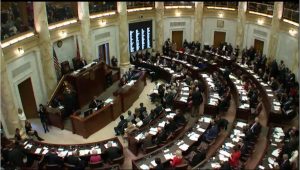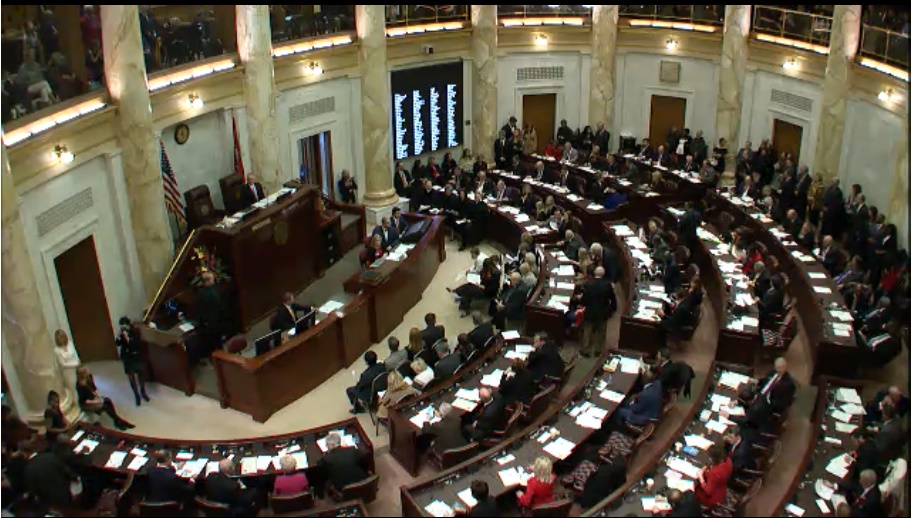 A week before Christmas, consultants for Arkansas’ Tax Reform and Relief Legislative Task Force released an interim report analyzing the state’s tax structures.
A week before Christmas, consultants for Arkansas’ Tax Reform and Relief Legislative Task Force released an interim report analyzing the state’s tax structures.
The report is some 180 pages long, and touches on everything from motor fuel taxes to K-12 education funding.
The report does not make any final recommendations about tax policies, but it does contain a few elements we find troubling.
#1. The Report Hints at Cutting Charitable Tax Exemptions
Under Arkansas law, sales to nonprofit hospitals, sanitariums, and nursing homes are exempt from state sales tax.
The report says exemptions like this one “significantly erode the state and local tax base.” In other words, the state’s consultants seem to think Arkansas might have a lot more tax revenue to work with if it started taxing sales to these charities.
The report refers to this exemption as a “prime candidate for review” by the Arkansas Legislature. It also highlights sales tax exemptions on churches and other nonprofits.
Charities and churches contribute at least $378 billion to the U.S. economy each year — and possibly much more than that, according to some estimates.
Many charities operate on budgets that are so tight they likely would have to shut their doors if they were taxed at the same rate as for-profit corporations. However, this report by the state’s consultants could lead some to conclude the State of Arkansas would somehow be better off if it taxed charitable organizations. That’s a dangerous conclusion.
#2. The Report Hints That Gambling Might Be a Good Source of Tax Revenue
The report notes that many states are turning to legalized sports betting as a source of tax revenue, and says,
While most excise taxes have shown little growth in recent years, the revenue from electronic games of skill [the casino games operated in Hot Springs and West Memphis] is a notable exception. Revenue generated by the tax shows a strong upward trend in recent years. Since 2012, revenues have more than doubled.
This hints that Arkansas might somehow reap more tax revenue if it legalized more gambling. However, no state has gambled and taxed its way to economic prosperity.
The Arkansas Lottery pulls hundreds of millions of dollars out of the state and local economy each year; casinos and other forms of gambling do the very same thing. As we noted a few years ago, poverty levels are above average in parts of Mississippi, Arkansas, and Oklahoma that have casinos.
What’s more, many experts will tell you the social and economic cost of gambling dwarfs any tax revenue the state might glean. The bottom line: Arkansas won’t improve its economy or its state budget by legalizing more gambling.
Conclusion
This report is not the final word on Arkansas’ tax policies. However, it could lead some to believe Arkansas might benefit by taxing charities and legalizing more gambling. Arkansans should think twice before venturing down that road.
You can read the entire interim report here.
READ MORE
 This week the Tax Reform and Relief Legislative Task Force met in Little Rock to discuss sales tax policies in Arkansas. The task force is reviewing possible changes to the state’s tax structure — including changes to tax exemptions in Arkansas.
This week the Tax Reform and Relief Legislative Task Force met in Little Rock to discuss sales tax policies in Arkansas. The task force is reviewing possible changes to the state’s tax structure — including changes to tax exemptions in Arkansas.


 A week before Christmas, consultants for Arkansas’ Tax Reform and Relief Legislative Task Force released
A week before Christmas, consultants for Arkansas’ Tax Reform and Relief Legislative Task Force released